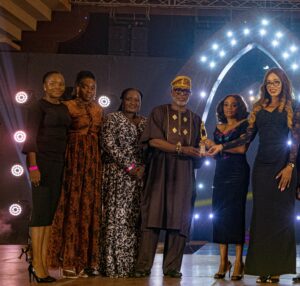
Digital technology has transformed nearly every aspect of modern life. Travel, work, shopping, entertainment, and communications are just some of the areas that have been revolutionized in recent decades. It’s now rare to find an electronic device or piece of machinery that doesn’t incorporate digital technology in some way.
Digital technology means that devices can be more compact, faster, lighter, and more versatile. Huge amounts of information can be stored locally or remotely and moved around virtually instantaneously. Even the term “information” has expanded to include media such as photos, audio, and video, and no longer refers to just words and numbers.
Social Connectivity
Digital technology makes it easy to stay in touch with friends, family, and work remotely, even if you are in another part of the world. You can communicate by words, video, audio, and exchange other media. Websites, apps, and software have all been created to help users to socialize. With social media, messaging, texting, laptops, tablets, and mobile phones, nobody need feel isolated in the digital world. News and local events update users regularly.
Communication Speeds
Internet speeds have increased exponentially since the early days of dial-up. Ever faster broadband enables the transfer of large amounts of information across the web almost instantaneously, making it possible to stream video and audio in real time, send large data files, and access data from virtually anywhere in the world. Traditional media generally takes much longer.
Versatile Working
The nature of work has been transformed by digital technology. Increased connectivity options mean that many people now have far more opportunities for working from home, as remote working becomes increasingly common. Many jobs can now be done from hundreds, or even thousands of miles away without difficulty. Without the need for all workers to be present in the same building, many other flexible working practices are now possible.
Learning Opportunities
Anybody with access to the internet now has access to a huge proportion of the world’s knowledge over the web. Lessons and courses can now be delivered virtually online. Communication advances mean that you can now easily communicate with most of the world’s population and learn directly from sources, for example if you are trying to understand foreign events, or learning a new language. Digital technology can also be easier to use for people with disabilities and often give them equal access.
Automation
Digital technology is increasingly making machines smarter. In some cases, the machines no longer need humans to operate them, freeing up workers from often boring tasks for more interesting pursuits. In other cases, smarter machines mean better standards of safety, or a better experience for the user. Products and services drop in price as the technology develops and becomes more common. Many tasks can now be done directly by customers, rather than having to be done through another person acting as an intermediary, for instance, booking a holiday.
Information Storage
Digital technology enables the storage of massive amounts of information in relatively small spaces. Large amounts of media, such as photos, music, videos, contact information, and other documents can be carried around on small devices like mobile phones. As well as physical locations, data can also be stored online, enabling it to be accessed from any device which has internet access.
Editing
One of the great advantages of digital technology over traditional media is that the information can be easier to edit or manipulate. Word processing has brought about a revolution in the editing of text. Video editing, which used to require expensive studios and equipment, can now be done on a laptop in a bedroom. All sorts of photographic effects are now available, as well as the ability creatively alter images.
Accurate Duplication
One of the great things about digital technology is that it enables the exact duplication of media. For instance, you can write a work report and email it to multiple recipients, or you can distribute multiple copies of photos to family and friends. Breakthroughs in technology are now happening in the field of 3D printing, which looks set to radically transform our world.
GPS and Mapping
Finding your way around used to involve referring to a paper map, but digital combined with satellite technology has transformed travel. GPS services can now pinpoint your position accurately, update you on traffic jams and road closures in real time, and give you lots of up-to-date information such as time of arrival at your destination, as well as alternative routes. If you want to find a gas station or drugstore that’s open, that’s easy too.
Transportation
Many trains and airplanes already rely to an extent on digital technology. Road vehicles, such as cars and trucks,will become fully automated in the not too distant future. Accessing timetables, as well as booking planes and trains now often takes place online. Passports contain digital chips that hold information, enabling self service machines to speed up the process of checking in and passing through customs.
By Femi Agbedejobi












